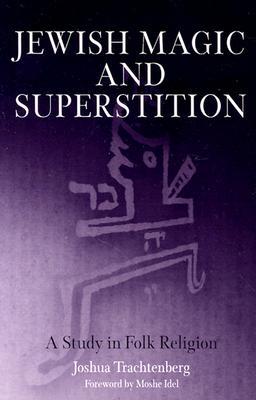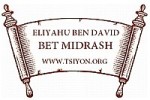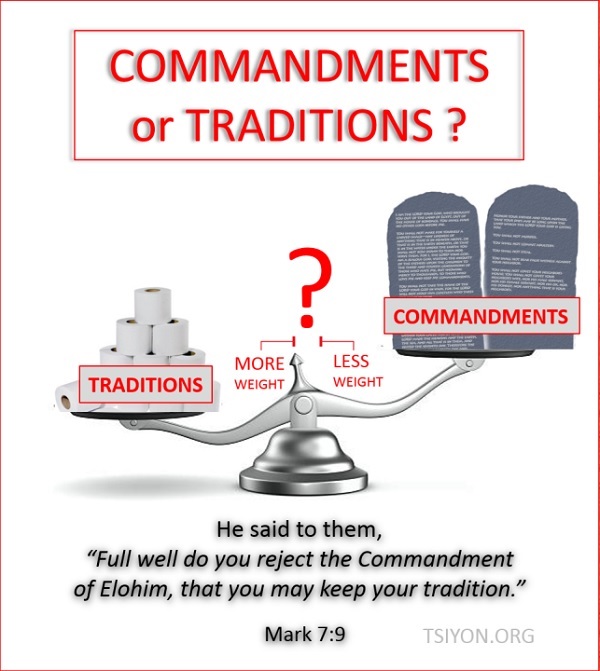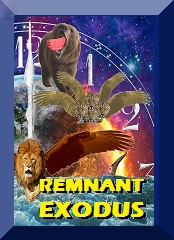Need to talk to us? - In the USA and Canada just call us toll free at (888) 230-2440 for help. Internationally, email us and we will arrange a phone or Skype call for you.
****************************************
From Eliyahu
 I
was speaking with an especially clever friend recently, and he was telling
me about his childhood experience with school. He was lamenting how hard he
worked to deduce the patterns in how individual teachers put their tests and
quizzes together, allowing him to get good scores without actually knowing
the answers. He said he wished he had put that energy into actually learning
the answers instead of manipulating the system. Why didn't he? He said that
no one told him that school was actually about learning things. Everyone's
emphasis, including his parents, seemed to be on grades, so he thought
grades were the important thing about school. Only later, after he grew up,
did he come to understand that grades are really supposed to be a measure of
what a student has actually learned. The over-emphasis on grades by everyone
important in his life had obscured the real purpose of school - to actually
learn something.
I
was speaking with an especially clever friend recently, and he was telling
me about his childhood experience with school. He was lamenting how hard he
worked to deduce the patterns in how individual teachers put their tests and
quizzes together, allowing him to get good scores without actually knowing
the answers. He said he wished he had put that energy into actually learning
the answers instead of manipulating the system. Why didn't he? He said that
no one told him that school was actually about learning things. Everyone's
emphasis, including his parents, seemed to be on grades, so he thought
grades were the important thing about school. Only later, after he grew up,
did he come to understand that grades are really supposed to be a measure of
what a student has actually learned. The over-emphasis on grades by everyone
important in his life had obscured the real purpose of school - to actually
learn something.
As I thought about my friend's comments I realized how often I have seen this kind of mistake. Human beings make this same kind of logical error over and over again. For example, a recent news article reported how a man who had been mistakenly certified as dead actually had to go to court to be recognized as still being alive! How strange that an official-looking document, in this case a death certificate, seems to be more persuasive to society than reality right in front of our eyes!
 You
see this ignorant fallacy, of the less important thing being elevated above
the more important thing, in all aspects of life; but no where is this
tendency more widespread than in the field of religion. I'm talking now
about religious customs and traditions. It is amazing to see the weird, and
sometimes painful, things that people do to satisfy the customs and
traditions of their religion. Take this guy pictured here for example. Ouch!
That looks painful! Why is he enduring the pain of a skewer through his
tongue? The truth is, I really don't know why he is doing that, but odds are
high that it has to do with some custom or tradition of his religion. If it
is a religious tradition, he probably doesn't even know where it came from
or what it is supposed to really mean - he just feels compelled to do it
because it is expected of him to do so.
You
see this ignorant fallacy, of the less important thing being elevated above
the more important thing, in all aspects of life; but no where is this
tendency more widespread than in the field of religion. I'm talking now
about religious customs and traditions. It is amazing to see the weird, and
sometimes painful, things that people do to satisfy the customs and
traditions of their religion. Take this guy pictured here for example. Ouch!
That looks painful! Why is he enduring the pain of a skewer through his
tongue? The truth is, I really don't know why he is doing that, but odds are
high that it has to do with some custom or tradition of his religion. If it
is a religious tradition, he probably doesn't even know where it came from
or what it is supposed to really mean - he just feels compelled to do it
because it is expected of him to do so.
 Consider
the Islamic Niqab (pronounced ni'kab).
A niqab is a veil worn by some
Muslim women as a tradition of their religion. Controversy over this has
been in the news in recent years. In some cases wearing or not wearing the
niqab is considered a life or death matter. It is common among the Arab
countries of the Persian Gulf, and is also found in North Africa, Southeast
Asia and the Indian subcontinent.
Consider
the Islamic Niqab (pronounced ni'kab).
A niqab is a veil worn by some
Muslim women as a tradition of their religion. Controversy over this has
been in the news in recent years. In some cases wearing or not wearing the
niqab is considered a life or death matter. It is common among the Arab
countries of the Persian Gulf, and is also found in North Africa, Southeast
Asia and the Indian subcontinent.
An outsider might think that a religious tradition of such apparent
emotional attachment must be well known in its origins and importance in the
religion. Actually, that is not the case at all. The niqab is regarded
differently by the various Islamic schools. Some see it as required (fard).
Some see it as merely recommended (mustahab). Some, a few, even see
it as forbidden. Like many religious traditions, the foundations of this
tradition are not as well known as one might expect.
 Christianity
is not without obscure, but ever-present, traditions either. One of these
traditions seen everywhere is the steeple on church buildings. This is
rather curious, if you think about it. There is no command in Scripture
requiring this, yet, you see church buildings of virtually every
denomination with steeples. This is so common, in fact, that we often
recognize a building as a church because it has a steeple. Many interpret
that as meaning a building cannot be a church without a steeple! Yet, if you
ask the average Christian why churches have steeples, very few, if any, will
be able to offer a satisfying answer. Non-Christians find this strange
indeed.
Christianity
is not without obscure, but ever-present, traditions either. One of these
traditions seen everywhere is the steeple on church buildings. This is
rather curious, if you think about it. There is no command in Scripture
requiring this, yet, you see church buildings of virtually every
denomination with steeples. This is so common, in fact, that we often
recognize a building as a church because it has a steeple. Many interpret
that as meaning a building cannot be a church without a steeple! Yet, if you
ask the average Christian why churches have steeples, very few, if any, will
be able to offer a satisfying answer. Non-Christians find this strange
indeed.
So where do steeples originate? Joseph Campbell, the author of The Hero with A Thousand Faces and Myths to Live By, explains:
"There are still in existence today remarkable specimens of original phallic symbols...steeples on the churches ... and obelisks ... all show the influence of our phallus-worshipping ancestors."
 One
might wonder how a symbol of pagan phallus worship could become a standard
part of the Christian Church. The truth is, the Christian Church is riddled
with pagan customs and traditions, from steeples, to the celebration of the
Roman Saturnalia (otherwise known as Christmas), to the pagan fertility
celebration of the pagan goddess, Astarte (otherwise known as Easter) - and
a lot more. Documentation of pagan customs in the Church is not hard to
find. In fact, there is a book written by Christian authors that uncovers
the pagan origins and traditions of Christianity. The book is entitled
Pagan Christianity?: Exploring the Roots of Our Church Practices. The
book's publisher wrote:
One
might wonder how a symbol of pagan phallus worship could become a standard
part of the Christian Church. The truth is, the Christian Church is riddled
with pagan customs and traditions, from steeples, to the celebration of the
Roman Saturnalia (otherwise known as Christmas), to the pagan fertility
celebration of the pagan goddess, Astarte (otherwise known as Easter) - and
a lot more. Documentation of pagan customs in the Church is not hard to
find. In fact, there is a book written by Christian authors that uncovers
the pagan origins and traditions of Christianity. The book is entitled
Pagan Christianity?: Exploring the Roots of Our Church Practices. The
book's publisher wrote:
"Many Christians take for granted that their church's practices are rooted in Scripture. Yet those practices look very different from those of the first-century church ... Pagan Christianity leads us on a fascinating tour through church history, revealing this startling and unsettling truth: Many cherished church traditions embraced today originated not out of the New Testament, but out of pagan practices."
 If
Christianity is riddled with pagan traditions, than certainly Judaism must
be Biblically-based - or so many think. Unfortunately, this is not the case.
Judaism too, is influenced by pagan practices, and I'm not speaking only of
Kabbalah, the Zohar and other ancient mystical Jewish writings, or even the
Talmud. Magic, a staple of paganism, remains active to this day in popular
Jewish customs.
If
Christianity is riddled with pagan traditions, than certainly Judaism must
be Biblically-based - or so many think. Unfortunately, this is not the case.
Judaism too, is influenced by pagan practices, and I'm not speaking only of
Kabbalah, the Zohar and other ancient mystical Jewish writings, or even the
Talmud. Magic, a staple of paganism, remains active to this day in popular
Jewish customs.
Here are examples:
"The resting place of Jonathan ben Uziel, a first-century sage, is believed to have magical powers: Visit the grave in Amukah, northern Israel, while you’re looking for love — and you’ll be married within the year. Thousands of couples swear it has worked for them. ..Red string bracelets and the hamsa symbol are examples of Jewish amulets that still have popular appeal. Such amulets, small tokens or written inscriptions have been used by Jews since the time of the Talmud for protection, healing, and warding off the Ayin Hara, the Evil Eye." [https://www.myjewishlearning.com/article/jewish-magical-practices-beliefs/]
Realizing that paganism and magic are forbidden in Scripture we are forced to ask: How is it that people who are familiar with the inspired Word of God, whether Christians, Jews or Messianics, fall into a mode where they adopt "traditions of men" - functionally placing them on a level above the express "commandment of God?"
This goes back to our opening observation. Like grades over learning, or a death certificate over a living person, humans often elevate form over reality. That is exactly what we are doing when we put religious traditions above the clear commandments of Scripture. We can ignore it, we can rationalize it, but we are in the wrong every time we do it. This is a matter of the heart. It has to do with love for truth, and love for our Heavenly Father.
In Mark 7 we are called to a higher way than mere traditions of men. Join us tonight at 8 PM CST for Tsiyon Academy, at Tsiyon.Net, as we consider this important topic.
Shalom,
Eliyahu ben
David
Tsiyon.Org
****************************************
Israel Celebrates Its 70th Anniversary of Independence

US President Donald Trump and Queen Elizabeth II were among the well-wishers for Israel’s 70th anniversary celebrated Thursday. Israel’s air force stages aerobatics shows for Independence Day in different parts of the country. The F-35 stealth bomber makes its debut appearance, along with visiting air force participants. At his residence in Jerusalem, President Reuven Rivlin receives 120 outstanding soldiers from different units in the day’s first event. It is followed by the annual International Bible contest. The Israel Prize award ceremony is the closing event. Many people will take advantage of the national holiday to visit army and police sites which are opened to the public, along with outdoor picnics and family gatherings.
Forty ambassadors to the United Nations arrived to take part in the celebrations from Africa, Asia-Pacific, the Caribbean, Europe and Latin America. The diplomats were in the large audience that watched the televised three-hour long spectacle Wednesday night at Mount Herzl in Jerusalem depicting in song, dance and rich pageantry the nation’s history accompanied by music and a brilliant fireworks display.
Prime Minister Binyamin Netanyahu was among the 14 Israelis honored as torch-lighters for outstanding achievements in diverse fields of endeavor.
Prof. Aviezri Frankel, veteran of Israel’s 1948 Independence War, who pioneered the first computer science studies in the country.
Veteran general Yashayahu Gavish, who began his military career as an officer in the pre-state Palmach. He shared the honor with Capt. Roy Levy of the elite Egoz, who returned to combat in the 2014 Gaza War after being injured twice.
Sheikh Mowafaq Tarif, the spiritual leader of Israel’s Druze community.
Racheli Ganot, an ultra-Orthodox woman who established a company which grooms religious women for the job market.
Prof. Marcelle Machluf, who arrived in Israel from Morocco as a child-orphan and developed treatments for cancer during a distinguished medical career.
Noam Gershony, an IDF chopper pilot who was wounded in the Second Lebanon War in 2006 and won gold in the 2012 Paralympics as a tennis champion in a wheelchair.
Ruth Kahanov, Israel’s ambassador to Japan, who lit the torch on behalf of Mashav, the Foreign Ministry’s department for international assistance.
May Korman, a schoolgirl of 15, who invented a gadget for warning parents against forgetting small children in their cars.
Margalit Zinati, whose family has lived continuously in the ancient Galilee town of Peki’in for 2,000 years, for preserving the ancient Jewish presence in the Galilee region.
Dr. Avshalom Kor, a distinguished linguist who is popular for his short radio spots on the correct use of the Hebrew language.
The entertainment world was represented by the popular singer and songwriter Shlomo Artzi, the actress Leah Konig, doyenne of the Habimah national theater, and Ze’ev Revach, a character actor known for his roles in numerous made-in-Israel movies.
In Israel’s Ministry of Economy and Industry contest, the public ranked as the greatest Israeli inventions of all time, the Iron Dome missile-defense system, followed by Waze international navigation, drip irrigation and Disk On Key data storage (Memory Stick.)
****************************************

****************************************
You can tune in to Tsiyon Road from around the world by using one of the
free apps on you mobile device from
![]() or
or
![]() or
or
![]() ..
..
You can also listen with
![]() or another radio stream outlet, or directly from our
website.
You get a lot for free on Tsiyon Road!
or another radio stream outlet, or directly from our
website.
You get a lot for free on Tsiyon Road!







